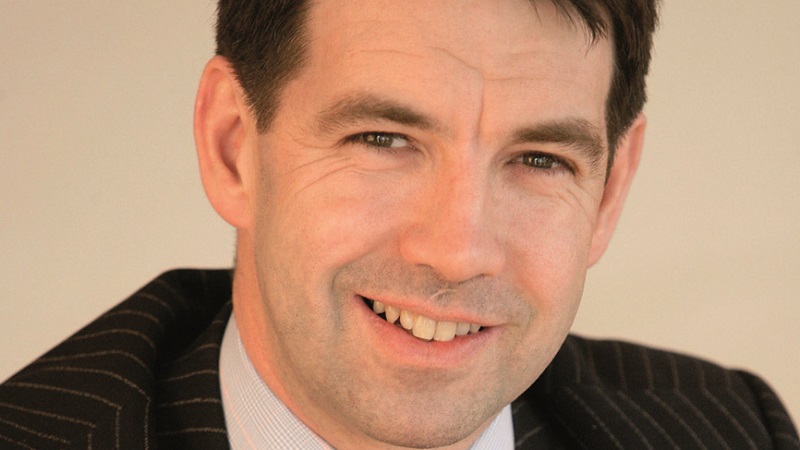The recent departure of some of the UK’s biggest value stalwarts has sparked concerns over the future of value investing as managers combat a hostile environment of ultra low interest rates and the economic fallout from the Covid crisis.
Portfolio manager turnover has been higher than normal during the coronavirus crisis which has put even more pressure on active fund houses to cut costs and rethink their product ranges.
Some of the most high-profile departures have been giants of the value investing space, including Invesco’s Mark Barnett, who once managed over £30bn worth of assets, Ninety One UK Special Situations manager Alastair Mundy and most recently M&G Recovery manager Tom Dobell (pictured).
See also: Is Covid prompting a career rethink for fund managers?
Fairview Investing consultant Ben Yearsley says the spate of departures is symptomatic of the market environment being pro-growth for more than a decade.
Barnett, Dobell and even, now disgraced manager, Neil Woodford had been “at the top of their game at various periods,” he notes.
“Some of them haven’t helped themselves with some of their stock picking, but at the same time, the market hasn’t been in their favour.”
Dobell substantially outperformed the FTSE All Share during his first decade at the helm of the M&G Recovery fund, according to FE Fundinfo, returning 97.8% between March 2000 and March 2010 versus the index’s gains of 27.5%. The average peer in the IA UK All Companies sector generated 17.5% in returns over the same period.
But over the next 10 years, as stock market momentum was driven by growth stocks, the average IA UK All Companies fund was up 45.4% while Dobell’s fund was nursing losses of 19.6%.
“It’s a shame that they all seem to be parting on a sour note for performance, but I’d say that’s probably typical of the industry,” Yearsley says. “A long-term market against the style, you’ll see a raft of managers leaving during that period.”
Traditional value will continue to struggle amid ‘rock bottom’ interest rates
A decade-long streak of underperformance has led to billions of pounds fleeing value strategies.
Barnett’s Invesco High Income fund stood at around £12.9bn in size when he took the reins from Woodford. By the time he left in May the fund had dwindled to around £3.3bn in assets.
Dobell’s Recovery fund is currently around £1.4bn, down substantially from its peak size of £8bn.
And the market environment doesn’t look set to improve for value managers anytime soon.
“Interest rates are at rock bottom … and that isn’t changing for two to four years probably, if not longer. So, from that point of view traditional value is going to have a tough time,” Yearsley says.
‘It might take a decade but value will come back’
That said fund selectors remain adamant there is a place for traditional value funds in portfolios.
“Cycles come and go,” says AJ Bell head of active portfolios Ryan Hughes. “I can remember 20 years ago that there weren’t too many managers running money calling themselves quality growth. Now, not a day goes by without a new manager emailing telling me they have a great quality growth fund.”
Yearsley agrees that eventually there will be a shift which favours value once again. “Interest rates will go up at some point, we’ll get out of the coronavirus, the Brexit funk, all those kinds of things. It might take a few months, it might take three years, it might take a decade – but value will come back into style.”
See also: Covid vaccine and rising inflation could provide a cure for flatlining value
Plenty of value stars hanging on
Chelsea Financial Services managing director Darius McDermott says even if a style has fallen out of favour it is important that IFAs and wealth managers have the option to invest in value strategies.
“Do I think value will outperform over the next couple of years? Probably not,” McDermott says. “But do I want to have the opportunity to invest in value funds? 100%.”
McDermott says around 15-20% of his equity exposure is currently in value strategies.
Despite the high-profile value managers who have left, there are still plenty of prominent value investors that remain, McDermott says, including Schroder Recovery duo Nick Kirrage and Kevin Murphy, as well as RWC managers Nick Purves and Ian Lance who are set to take over the Temple Bar investment trust, which was previously run by Mundy.
Hughes rates Man GLG’s Henry Dixon, Jupiter UK Special Situations manager Ben Whitmore and Fidelity Special Situations lead Alex Wright as high-quality value managers though he acknowledges “recent performance has been a struggle”.
“But, when you talk to these managers, they are hugely excited about the quality of business they can buy at current valuation levels, however, they acknowledge that it will take time for this to be recognised by the wider market,” Hughes says.
Lost generation of value managers
But as long as growth continues to outperform value strategies Yearsley thinks the pool of value managers will continue shrinking.
“People are still going to invest in value, but maybe not in the numbers they did a decade ago,” Yearsley says.
Yearsley says new managers who are just starting out tend to gravitate toward the popular investing style of the day. “Value was in vogue in the 90s when all these guys started or the late 80s for Woodford”. “How many value managers are in their 30s? You probably haven’t got any”.










